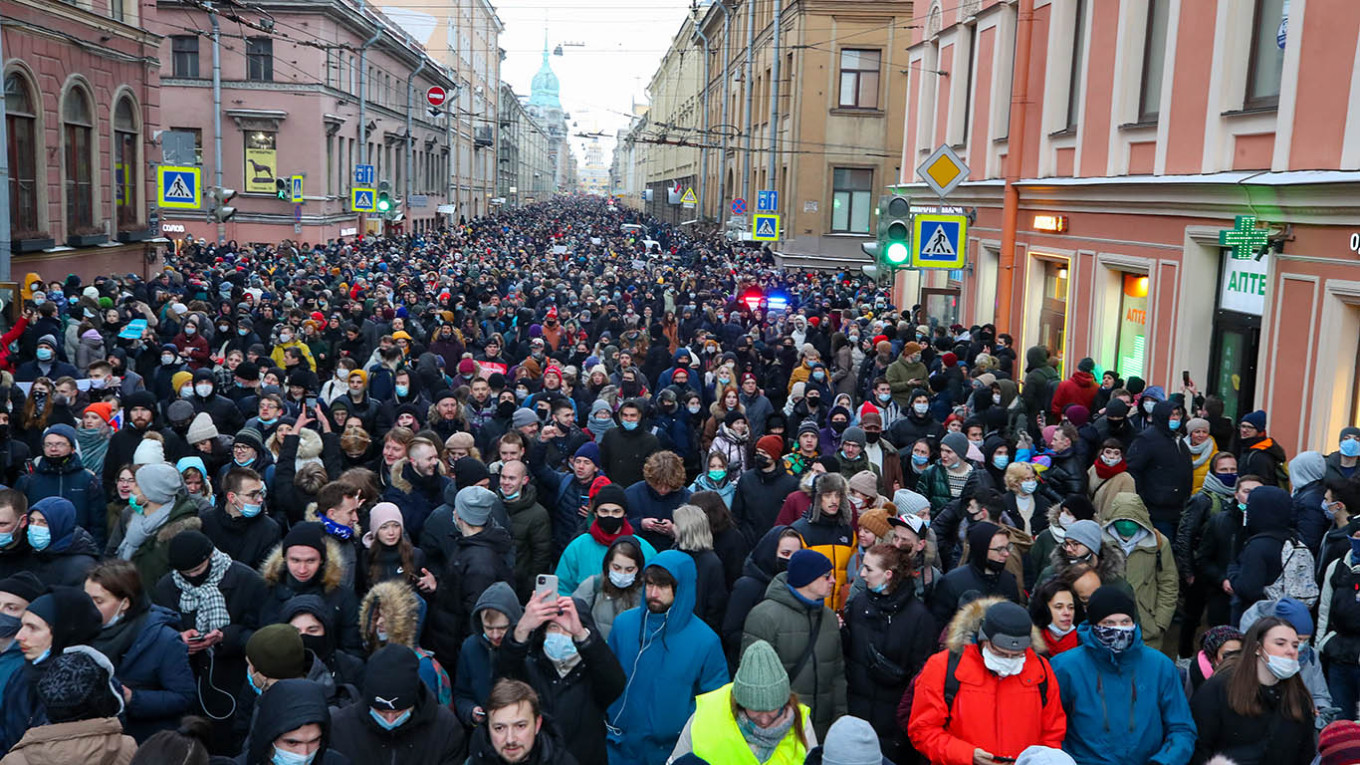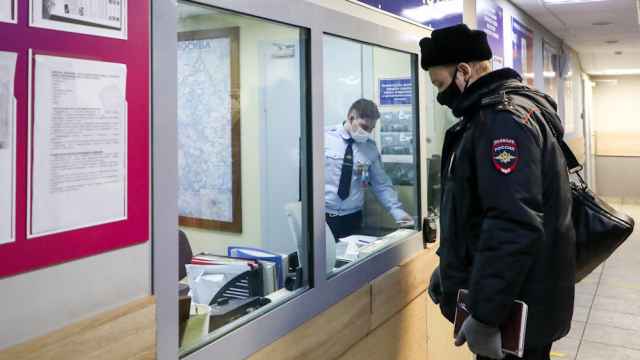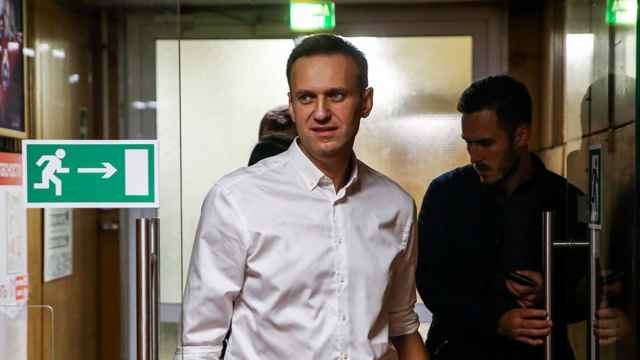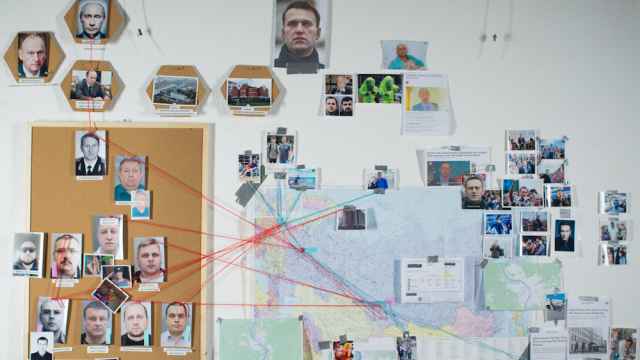The Russian Federal Security Service (FSB)’s internal estimates for recent marches in support of jailed Kremlin critic Alexei Navalny placed the protester count at much higher numbers than officially acknowledged, the Meduza news website reported Tuesday.
The data is reportedly part of the highly secretive FSB military counterintelligence unit’s first known comprehensive review of public support for Navalny.
“The situation has crossed into another level: Let’s finally find out how many there are and what are the social reasons for Navalny’s support,” an unnamed officer from the unit was quoted as saying.
Its internal report states that more than 90,000 people took to the streets in 143 Russian cities on Jan. 23 and Jan. 31 to demand Navalny’s release, according to Meduza. Around 12,000 of them were detained, it added.
Official Interior Ministry figures placed the number of protesters nationwide at fewer than 10,000 on both dates combined. The Kremlin has said that “more people voted for Putin” than turned out at the protests, where many demonstrators chanted anti-Putin slogans.
Meduza reported that the FSB’s counterintelligence unit, which oversees the Defense Ministry and National Guard as part of efforts to combat foreign espionage, has also been tasked with rooting out support for Navalny within the military.
Five soldiers were found to have taken part in the pro-Navalny marches and 10 others expressed support for the protesters, Meduza said, resulting in an internal investigation.
The secretive FSB unit also monitors the troops’ family members, including children who watch Navalny’s YouTube investigations, the outlet added.
Navalny, 44, was sentenced to two and a half years in a penal colony last month for violating parole while recovering in Germany from poisoning.
European scientists determined that President Vladimir Putin's most vocal domestic critic was nearly killed by a Soviet-designed nerve agent Novichok and Western leaders urged Russia to investigate the incident. Navalny and his allies blame the FSB for carrying out the Aug. 20 attack, a claim rejected by the authorities.
A Message from The Moscow Times:
Dear readers,
We are facing unprecedented challenges. Russia's Prosecutor General's Office has designated The Moscow Times as an "undesirable" organization, criminalizing our work and putting our staff at risk of prosecution. This follows our earlier unjust labeling as a "foreign agent."
These actions are direct attempts to silence independent journalism in Russia. The authorities claim our work "discredits the decisions of the Russian leadership." We see things differently: we strive to provide accurate, unbiased reporting on Russia.
We, the journalists of The Moscow Times, refuse to be silenced. But to continue our work, we need your help.
Your support, no matter how small, makes a world of difference. If you can, please support us monthly starting from just $2. It's quick to set up, and every contribution makes a significant impact.
By supporting The Moscow Times, you're defending open, independent journalism in the face of repression. Thank you for standing with us.
Remind me later.






